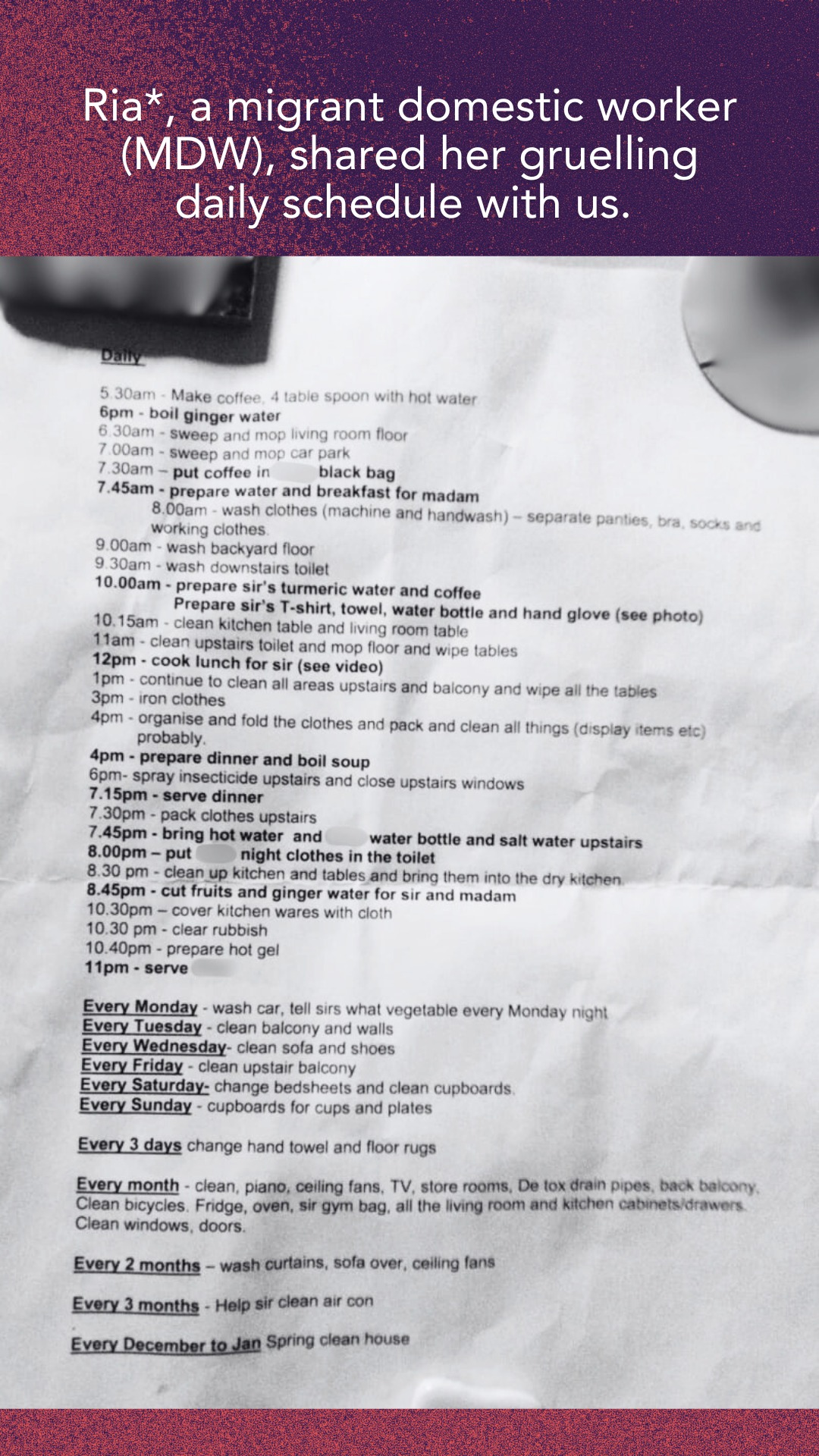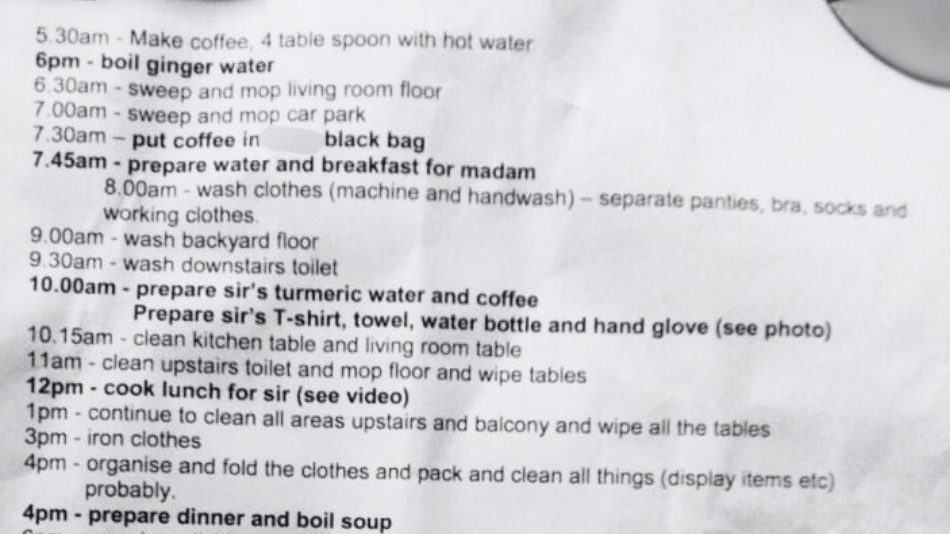SINGAPORE: After a domestic helper in Singapore shared a printout of her exhausting work schedule with HOME: Humanitarian Organisation for Migration Economics, the organisation shared the plight of many migrant domestic workers (MDWs) around the country who struggle to get adequate rest given the demands of their employers.
On Sunday (Jan 5), HOME shared a photo sent to them by an MDW featuring her work schedule. According to the printout, her work day starts at 5:30 am as she is expected to prepare coffee.
Then, after boiling ginger water, she is to sweep and mop the living room floor at 6:30 am. The schedule goes on to list task after task until 11 pm.

The organisation took to social media on Sunday to share the MDW’s work schedule, giving Singaporeans a look into the reality of life for many domestic workers in the country.
“Domestic workers are legally entitled to ‘adequate rest’ under the law—but what does this actually mean?” the post read. To preserve the anonymity of the domestic worker who came forward with her work schedule, HOME assigned her the name Ria.
“Ria, a migrant domestic worker (MDW), shared her gruelling daily schedule with us,” HOME wrote in their post. “Her work day begins at 5.30 am—which means she will likely have to get up earlier—and ends past 11 pm.
On top of her daily chores, she is also assigned weekly tasks on designated days, further eroding what little rest time she may have.”
MDWs need adequate rest
“Unsurprisingly, Ria described herself as perpetually exhausted as she was required to adhere to the schedule strictly. Even her rest day, granted only once a month, was hardly restful.
She could only leave the house at 10 am after completing chores and had to return by 4 pm to resume chores.”
HOME went on to argue, “The Ministry of Manpower (MOM) has said that legislating working hours of MDWs is ‘not practical’, citing the need for household flexibility. However, this flexibility comes at a significant cost to MDWs’ well-being.
Overwork remains one of the most frequent complaints reported by MDWs residing at HOME’s shelter. Requests for shorter working hours are often dismissed with retorts like, ‘You are here to work, not relax!’.”
MDWs with caregiving duties
The organisation went on to share that MDWs who have caregiving responsibilities have it even worse.
“They may have to tend to their care recipient’s toileting needs or medication schedule during the night, resulting in interrupted sleep and almost round-the-clock work,” the post added.
“For MDWs who report overwork, recourse is rare: the absence of a clear definition of ‘adequate rest’ and their exclusion from the Employment Act—which limits working hours for other workers—leave them vulnerable.
Employers of overworked MDWs retain the power to repatriate them even when many of them wish to continue working under fairer conditions.
Adequate rest is crucial for live-in domestic workers, whose roles are physically and emotionally demanding. HOME strongly advocates for MDWs to be included in the Employment Act, ensuring limits on their working hours.
Rest days must also be weekly and defined as 24 continuous hours to protect the health and dignity of these essential workers.”
HOME: Humanitarian Organisation for Migration Economics
HOME, founded in 2004 by the late Ms Bridget Tan, champions the rights of MDWs.
The organisation “is dedicated to supporting, empowering and upholding the rights of migrant workers in Singapore” and is guided by three pillars: welfare, empowerment, and advocacy.
“We work with corporations, government agencies and community partners to promote inclusion, justice, equality and dignity for all,” they state on their site.




